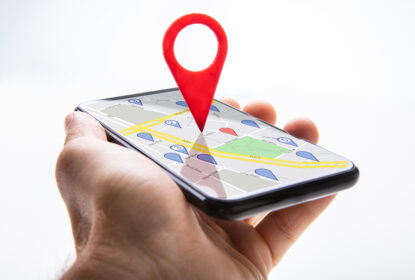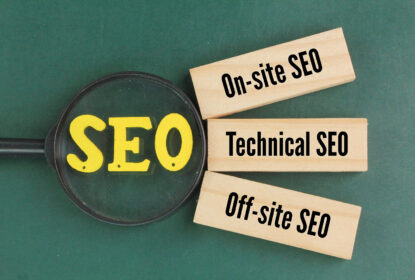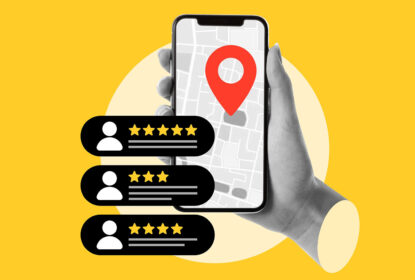The world of marketing has drastically changed in just a few short decades. With the advancement of technology and customers’ continued reliance on the internet and digital technology, advertisers and marketers have had to change how they interact with customers to funnel new leads. Traditional forms of marketing, such as television, radio, billboards, and print, have taken a backseat to digital advertising. Search engines have given individuals a quick and easy way to look for and find new products and services. They have also allowed smaller businesses to receive a level of traffic they would not have received without the internet.
As search engines have gained more popularity among consumers, more and more marketers have begun to prioritize these search engines and the internet. Digital advertising has quickly become a critical way of reaching new customers. Paid search marketing has become a pillar in most digital marketing campaigns. It’s become a popular and effective way to reach new customers in a continually growing competitive landscape.
However, many people don’t understand what paid search marketing is. In fact, some businesses do not even utilize it in their marketing campaigns, which puts them at a disadvantage against their competitors. Operating as a premier digital advertising agency in DFW, ARYU Advertising understands the importance of paid search marketing and knows how to effectively optimize it, ensuring that your business sees the best results possible.
What is Paid Search Marketing?
As we stated earlier, paid search marketing, also known as search engine marketing, has become a useful tactic for marketers. In 2018, $124.1 billion was spent globally on search advertising. Experts predict that this number will continue to increase over the coming years. In just the U.S. alone, experts believe that marketers will spend over $86 billion by 2023. With so much money being funneled into it, what is paid search marketing?
Consumers use search engines, like Google and Bing, to find new products and services. Often, local listings appear first. However, with paid search marketing, advertisers can place their ads on search engine results pages (SERP), allowing consumers to find them first. This puts your brand and business in front of individuals who are actively searching for a solution to their problem (as in needing to find a specific service or product). The most common form of paid search marketing is pay-per-click (PPC).
What is PPC?
As the name suggests, pay-per-click means that you only have to pay for your ad anytime a user clicks on it. Essentially, even though your ad appears on a SERP, you do not have to pay for it if no one clicks on it. A benefit of PPC advertising is that you can easily track and measure how well each ad is doing. This enables you to reallocate funds in areas that are funneling more traffic and leads to your landing page and business. PPC advertising is a cost-effective and efficient way to attract more traffic.
How Paid Search Marketing Can Benefit You
What sets paid search apart from other kinds of paid media is how specific you can get. Instead of simply displaying your ad across multiple websites in front of a wide audience, you can accurately target consumers who matter most to your business. While it is good to target broad audiences, a lot of those individuals are not going to convert. Many of them may not even be interested in your business or the services you provide. However, with paid search marketing, you can put your business in front of the people who are actively looking for your business or the services your business provides, boosting the likelihood of a conversion.
Additionally, a huge mistake many marketers make is forgetting to track their return on investment (ROI). What makes digital advertising so useful is that everything you do can be tracked and measured. You are capable of knowing how many people have seen your ads, as well as how many have completed an action, or how many conversions you have. These conversions can be:
- Clicked links
- Contract form submissions
- Online purchases
- Live chat interactions
- Phone calls
Your paid search ads help you accurately measure how many leads you have gained or how much revenue your ads have generated. You can measure your ads to see which have been providing you with the best returns so that you can adjust your funds accordingly.
Importance of Keywords
Keywords play a pivotal role in your paid search ads. After all, they are what decide if your ad will show up or not. Keywords are the search terms people type into a search engine when they are looking for a product or service. Google and Bing each have their own tools that help you discover what words or phrases people are using to find products and services similar to yours. With these tools, you can find potential keywords, how many people search for them a month, the level of competition, and their likely cost-per-click (CPC).
There are a few different keyword match types that impact when your ads appear, including:
- Exact Match: your ads will only show if someone searches for your exact term; for example, “men’s shoes,” and it will
also include plurals and spelling mistakes. - Phrase Match: your ads will appear if a user searches your exact phrase but includes words before or after it; for
example, “training men’s shoes” or “men’s shoe store.” - Broad Match: your ads will appear if a user searches for your phrase in any order, including
You should carefully think about what match types to use to ensure that you can see a higher return.
Keyword Bid
However, you do have to place bids on specific keywords you want your ads to appear for. Your bid is how much you are willing to pay per click for your ad to appear on SERP. While many search engines provide recommendations, your ad budget should dictate how much you spend.
After a bid is set, your ads enter an auction. Here, two factors play a role in deciding where your ad appears on a page: bid and quality score. Quality score measures keywords on a scale of 1-10. It takes into account expected click-through rate, ad relevance, and landing page experience. Quality score keeps marketers from paying more to appear at the top.
The Difference Between Paid and Organic
It’s fairly simple to differentiate between paid ads and organic ones. If you look at a SERP, the first few listings are typically advertisements. They will usually have a small symbol that reads “ad.” These ads often blend in with other listings, operating as native advertising. They look, feel, and function like every other listing. Users often don’t even notice that they clicked on an ad. When you pay for an ad, you pay to have it put above organic search listings. Organic listings usually appear below paid ads and local pack, which shows the local businesses related to your search.
Why is paid search marketing so crucial? 93% of online experiences start with a search engine, so the best way to reach new customers is on a search engine. Furthermore, 75% of users never scroll past the first SERP, which means that if you do not appear on the first page of a search engine, consumers may never find your business. ARYU Advertising understands the importance and effectiveness of paid search marketing. We know how to best utilize it to ensure that your business receives the best possible ROI.










